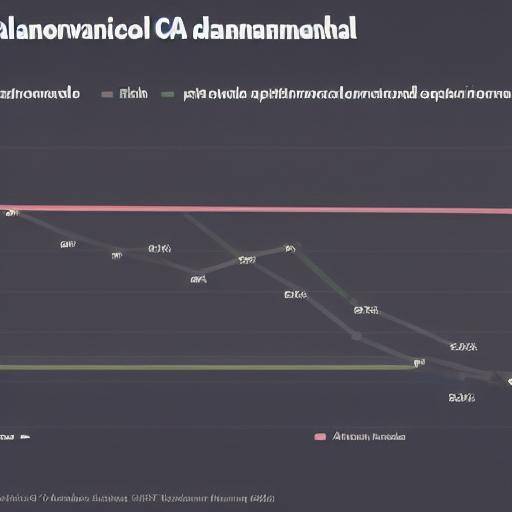
Resilience management has become a crucial element for success in any area. The ability of an organization or individual to resist and recover from adverse situations has become fundamental in a dynamic and changing world. However, for effective resilience management, planning plays an essential role. In this article, we will explore in detail the importance of planning in resilience management, analysing its impact, benefits and strategies to achieve sustainable success.
Introduction
Resilience management refers to the ability to adapt and recover from crisis situations, whether at a personal, organizational or community level. Planning, in this context, involves strategic preparation to confront and overcome potential challenges. In understanding the interrelationship between planning and resilience, the door opens to a proactive approach that mitigates the impact of adverse events and enhances long-term success.
In this article, we will explore the relationship between planning, resilience and success, as well as its impact on various aspects of personal and professional life. We will address the importance of planning in resilience management, highlighting its influence on decision-making, resource optimization and anticipation of future scenarios. We will also discuss case studies, current trends and future prospects to provide an integral vision of this fundamental topic.
History and Background
The management of resilience has its roots in the human need to face challenges and adversities throughout history. From ancient civilizations to the modern era, the ability to overcome crises and recover from traumatic events has been a determining factor in the evolution and survival of individuals and societies.
In the contemporary era, planning has been integrated as a central component of resilience management, with the understanding that strategic anticipation and preparedness are critical to mitigating risks and enhancing adaptation capacity. Over the decades, various catastrophic events and emergency situations have emphasized the importance of planning in resilience management, leading to a greater focus on the adoption of preventive and strategic practices.
Deep analysis
The interaction between planning, resilience and success encompasses multiple dimensions, from individual to global. On a personal level, effective planning can enable people to face labour changes, family crises or health challenges with a greater sense of control and adaptive capacity. At the organizational level, strategic planning can make the difference between failure and resilience to adverse situations, determining business continuity and recovery capacity after disruptive events.
Planning in resilience management has become a central area of research and practice in disciplines such as psychology, risk management, job security and business continuity. This comprehensive approach encompasses the identification of potential threats, vulnerability assessment, the formulation of mitigation strategies and recovery preparedness.
Comprehensive review
The effective implementation of planning in resilience management requires a deep understanding of available best practices, tools and methodologies. The integration of planning into organizational culture, the active participation of partners and proactive risk management are key elements for long-term success. This combination of strategic and operational approaches maximizes adaptation capacity and resistance to unforeseen situations.
In strategic decision-making, planning plays a crucial role in enabling anticipation of possible future scenarios and preparation for contingency. A strategic planning-based approach can identify areas of vulnerability, opportunities for improvement and possible action courses to mitigate the impact of adverse events. This proactive preparation not only reduces susceptibility to sudden crises, but also lays a solid foundation for long-term sustainable growth and resilience.
Comparative analysis
By comparing planning, resilience and success, it is clear that these concepts are intrinsically interconnected. Effective planning lays the foundation for resilience, while driving the path to sustainable success. Resilience, in turn, depends on planning capacity to anticipate and mitigate risks, strengthening resilience and adaptation. Success, in this context, is influenced by the synergistic combination of planning and resilience, which allow for the overcoming of challenges and the maximization of opportunities.
Practical Tips and Accessible Recommendations
To effectively integrate planning into resilience management, practical approaches and concrete actions are crucial. Some key recommendations may include:
- Establish a comprehensive planning framework covering different risk scenarios.
- To involve all stakeholders in identifying and assessing vulnerabilities.
- Implement drills and contingency exercises to test resilience plans.
- Maintain clear and transparent communication against adverse situations, fostering trust and collaboration.
Conclusion
In short, planning plays a key role in resilience management, acting as a foundation on which sustainable success is built. By proactively addressing potential challenges, adaptation capacity is strengthened and an enabling environment for growth and innovation is created. In understanding the interconnection between planning, resilience and success, the ability of individuals and organizations to thrive in a dynamic and changing world is enhanced.
Frequently asked questions
Why is it important to plan on resilience management?
Resilience management planning is essential because it allows to anticipate and prepare for adverse situations, reducing the impact of unforeseen events and strengthening recovery capacity.
How can planning impact sustainable success?
Effective planning creates solid foundations for sustainable success by identifying areas of improvement, mitigating potential risks and establishing proactive strategies to address challenges.
What is the role of planning in strategic decision-making?
Planning influences strategic decision-making by allowing anticipation of possible future scenarios, evaluating the implications of different courses of action and preparing for contingency.
How can organizations integrate planning into their business culture?
Organizations can integrate planning into their business culture by promoting the active participation of partners, adopting proactive approaches and undertaking regular risk assessments.
What are the main barriers to effective planning in resilience management?
The main barriers are often lack of resources, resistance to change and lack of awareness of the importance of planning in the context of resilience management.
What role does communication play in planning for resilience management?
Clear and transparent communication is crucial in planning for resilience management, as it builds the confidence, collaboration and willingness of stakeholders to face challenges together.
In conclusion, effective planning in resilience management is a key ingredient for sustainable success in a world characterized by uncertainty and complexity. By strategically integrating planning into resilience processes, the foundations for effective management of adverse events and maximization of future opportunities are established. By understanding and applying these concepts in an integrated manner, organizations and individuals can face challenges with confidence and thrive in changing environments.






















































